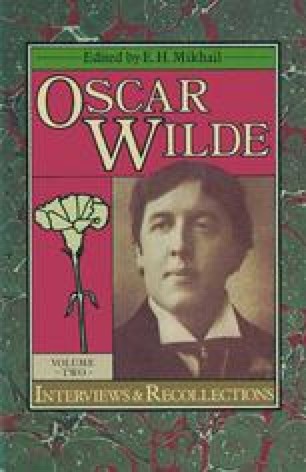
Wilde lived large and beyond boundaries even in poverty. Modern camera techniques bring a fresh, almost shocking verite to scenes like Wilde being chased through European streets by a gang of thuggish young men, or being shackled at a railway station, and subject to the stares and insults of passers-by. All gaslight and natural light, the aesthetic is centred in a salon and restaurant, with a richness and sense of the theatrical that is in tune with Wilde’s life and period. It’s a robust production, immersive in historical detail but never static, rather like a Lautrec come to life. Homosexuality wasn’t an issue, it wasn’t talked about until the death of Oscar Wilde.”Īs well as writing and directing, Everett plays the exiled, ailing Wilde and assembles an excellent cast of co-stars including Colin Firth, Emily Watson and Tom Wilkinson. He died in 1900 and that was really when the LGBTQ road to liberation started. “It’s the riches to rags element of the Wilde story that really compounded his image as one of the greats ideas for the 20th century.

The experience broke him and he died penniless, less than three years after his release, at age 46. Wilde was arrested for gross indecency and served two years hard labour. Wilde’s height of fame came about through plays including The Importance of Being Earnest and An Ideal Husband (Everett starred in stage and film productions of both plays) and his fall came from a court battle with the father of his lover, Lord Alfred Douglas. I love that about him and how he dealt with his fate.” He was never a victim, he attacked failure and he just spiralled down with amazing humour and irony.

All the other films that had been made about him always end at the point where my film begins so it felt like it was a good story to tell. “This idea of a star falling from grace and living among vagrants and street urchins, a man who used to be friends with royalty and the toast of the Cafe Royal – his fall is the most fascinating part of his life for me.
Oscar wilde films full#
Full of emotion as he spoke to the audience after the premier screening at the Sundance Film Festival. Dewdney’s performance is gratifying to watch.The Happy Prince, Rupert Everett’s passion project about the last years of Oscar Wilde, centres on a poignant scene in the shabby bedroom in Paris where Wilde spent his last days. Nicolet has given Wilde well rounded characterisation little things like his quips, retorts or behaviour add substance to and build a person out of historical accounts. In fact, Wooldridge’s answer implying that he does not find honesty in Wilde’s work is both a lingering moment cinematically and a slant reference to criticisms of his snobbery. Wooldridge (John Ellis Fox) is shown to almost be like a muse to Wilde, in the way Wilde asks him questions on his work. Wooldridge, a man sentenced to death by hanging for murder of his wife.
/GettyImages-89857968-56df28275f9b5854a9f6aa80.jpg)
In the last moments of the film, as Wilde (played by Paul Dewdney) sits down to finally write, it is not De Profundis he is shown to write, but his grim ballad on the prison instead, the central character of which is Col. Nicolet takes liberties with the history. And yet again, this is not a surprise the film bases itself on Wilde’s The Ballad Of Reading Gaol. And appropriately, it reflects as much on Wilde’s experiences as it does on the almost alive beast that is Reading Gaol.

Aymeric Nicolet’s honest portrayal of Oscar Wilde and his days in prison, leading up to the composition of De Profundis, is simply named Reading Gaol.


 0 kommentar(er)
0 kommentar(er)
